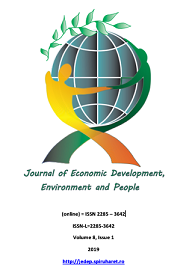Knowledge Management and the Governmental Organizations
Knowledge Management and the Governmental Organizations
Author(s): Rahil Asadi, Larisa Mihoreanu, Vasilica Georgiana RaduSubject(s): Business Economy / Management, Micro-Economics, Economic development, Accounting - Business Administration
Published by: Editura Fundaţiei România de Mâine
Keywords: Knowledge; Knowledge Management; Governmental organizations;
Summary/Abstract: Nowadays, the concept of Knowledge Management (KM) is gradually being recognized in governmental establishments which are seeking to deploy their own KM system and make the most of their existing knowledge in policymaking by creating and maintaining a competitive advantage in the domestic and international environment. Knowledge is a primary resource featured to provide a competitive advantage to any organization that recognizes and incorporates it efficiently in its processes. This article aims to review the knowledge management value and pillars by describing its cycle and highlighting its importance for governmental organizations. Knowledge management will begin and proceed from within organizations. In this article, a computational model is proposed where the organizations will accomplish this aim by developing this model and analyzing the components that influence it. The obstacles and difficulties of implementing and deploying knowledge management in governmental organizations as well as suggested solutions are also discussed. As a result, the importance of knowledge management and the governmental organization's need for knowledge management to achieve the profitability has been demonstrated, along with recommendations for decision-makers to enhance the efficiency of the knowledge management implementation and scale up the gain of a lasting competitive advantage within national and international environments.
Journal: Journal of Economic Development, Environment and People
- Issue Year: 9/2020
- Issue No: 3
- Page Range: 75-82
- Page Count: 8
- Language: English

